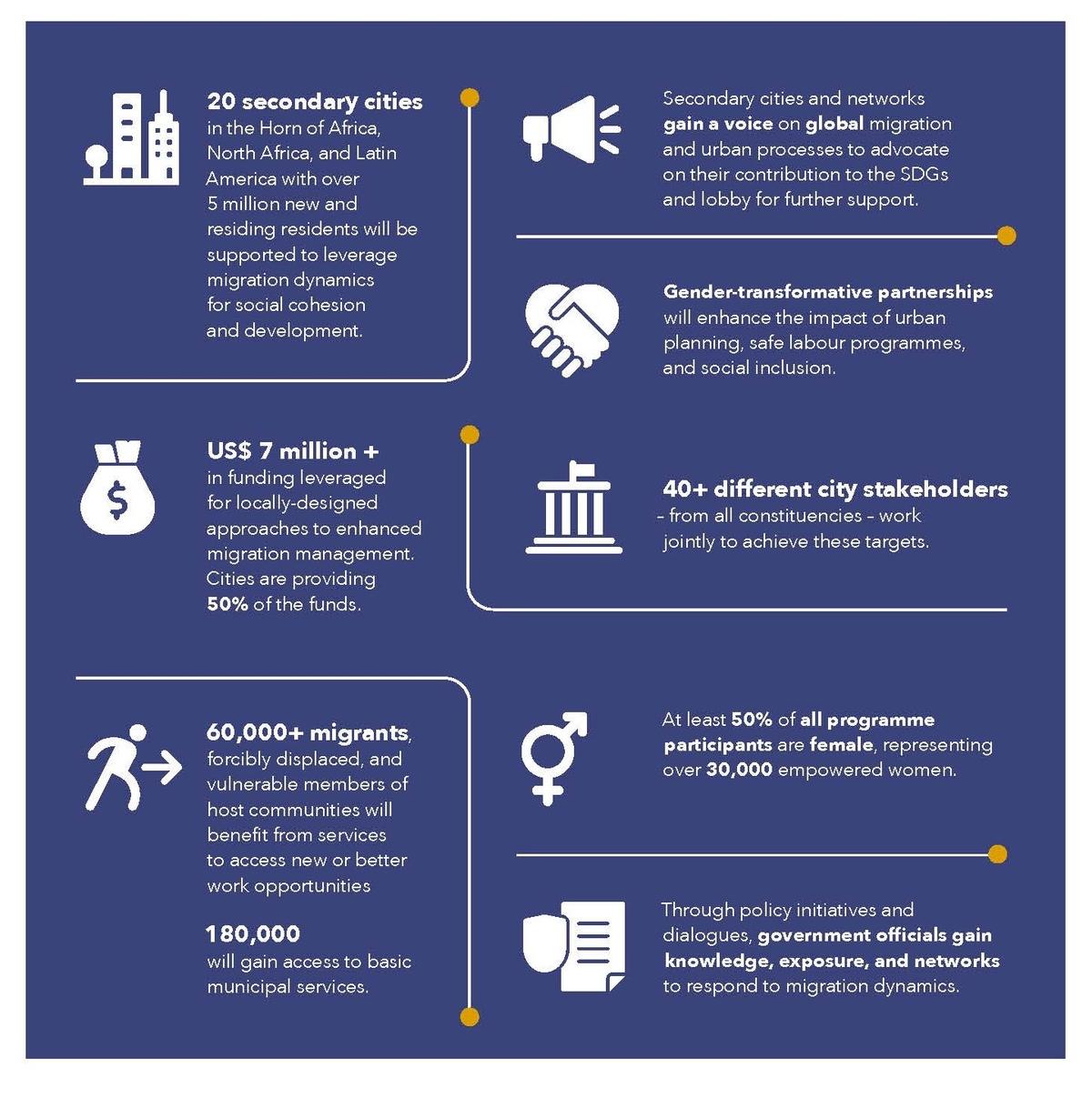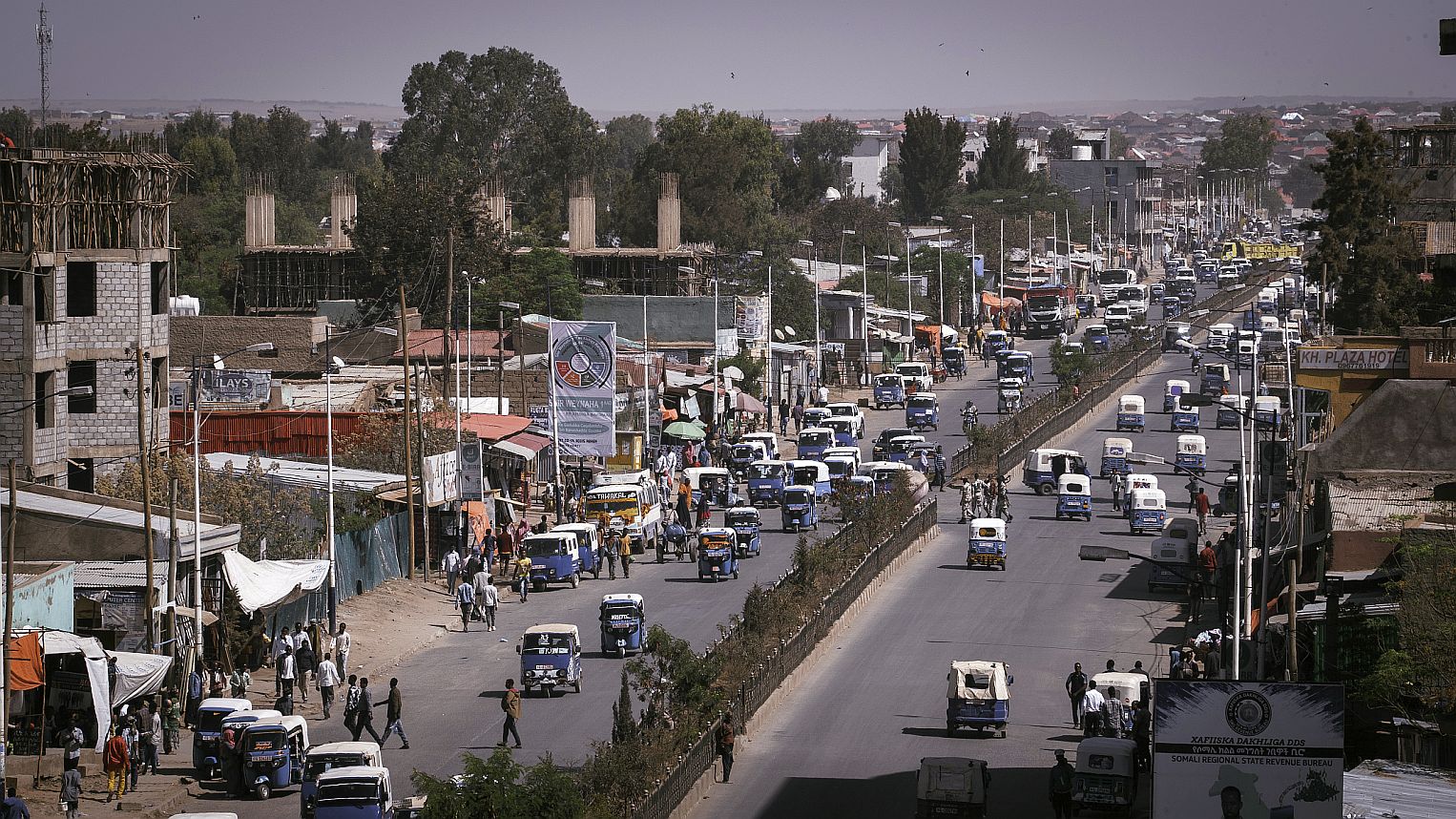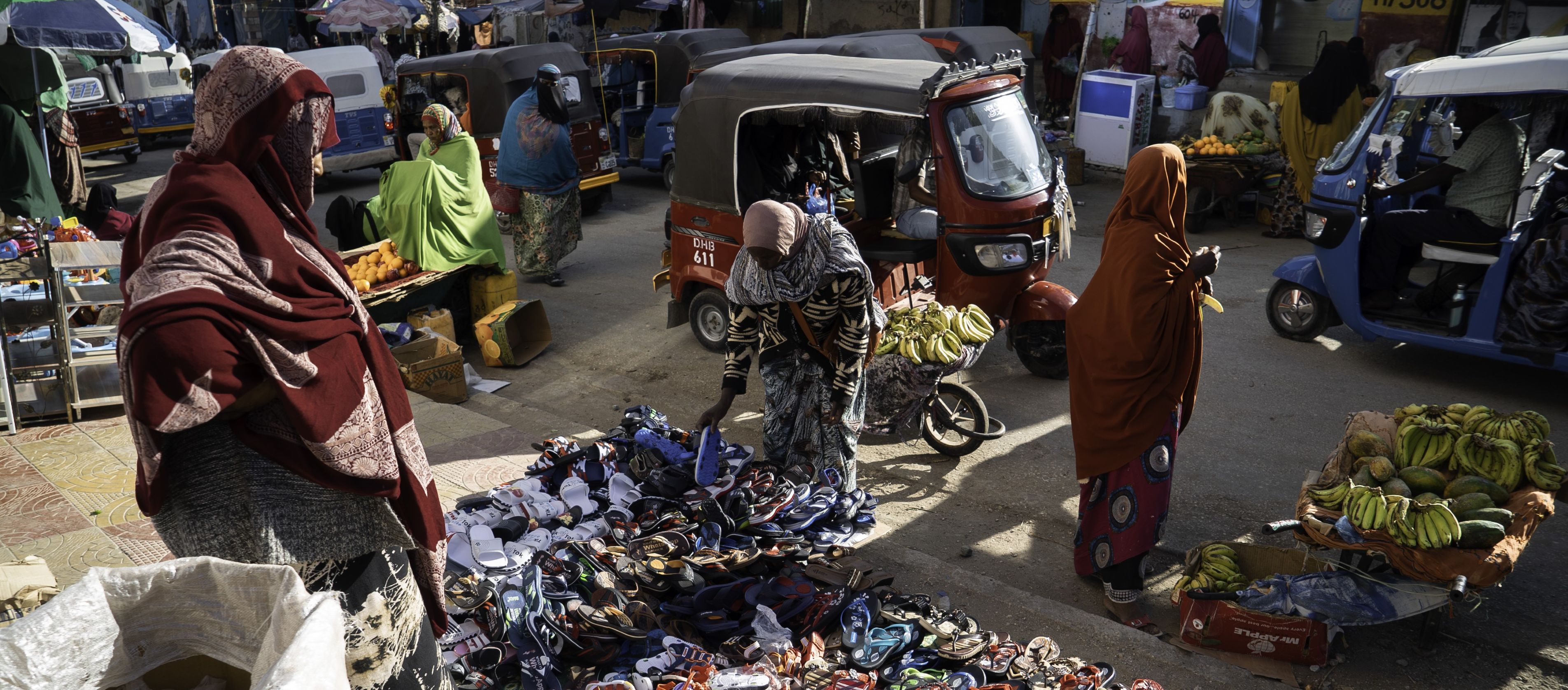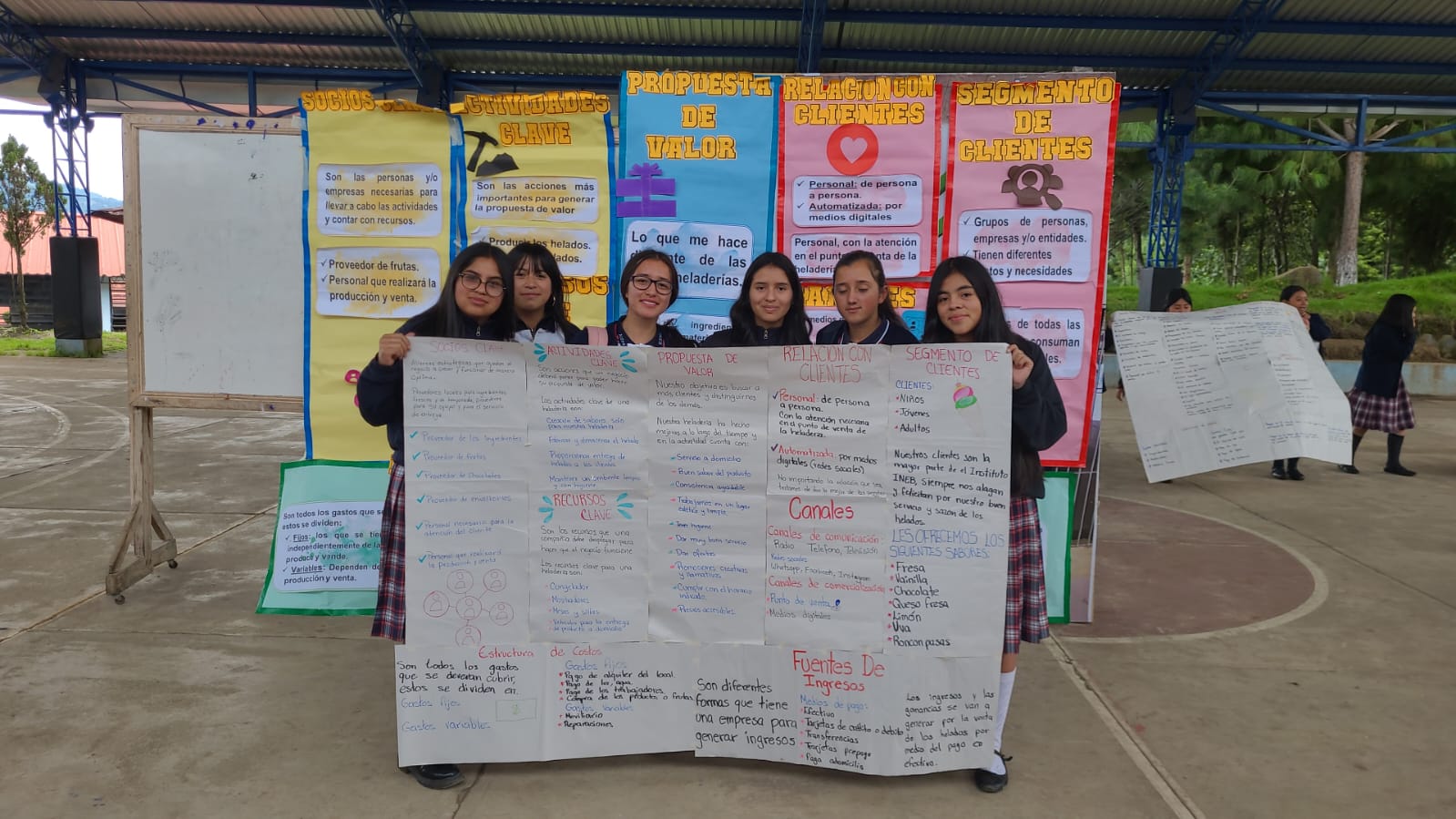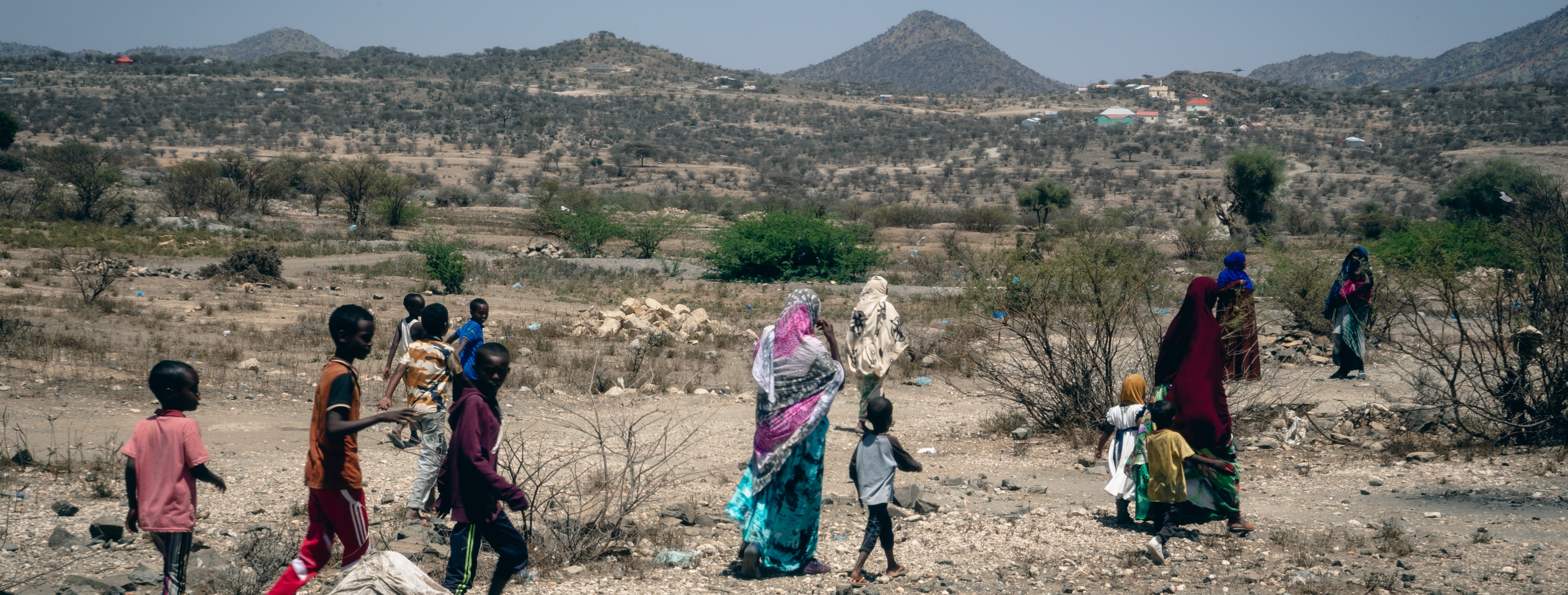A new programme, funded by the Swiss Agency for Development and Cooperation (SDC) and supported by Cities Alliance, is demonstrating that the localisation of migration management is a viable and efficient way to achieve development goals.
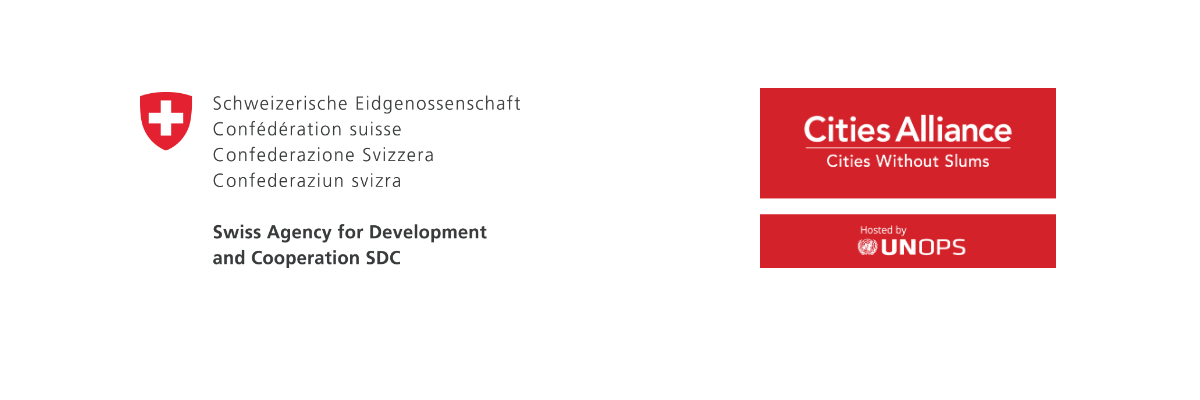
More people are migrating to cities than ever before in search of shelter, well-being, and opportunities. Many of them are heading to fast-growing secondary cities, which need support to respond in a way that leverages migration for local development and benefits both residents and newcomers. A partnership initiative between Cities Alliance and the SDC is empowering secondary cities to become central actors and leaders in unlocking the development potential of migration.

The Resilient Systems of Secondary Cities and Migration Dynamics programme supports initiatives designed by secondary city stakeholders in Ethiopia, Guatemala, Tunisia, Somalia, and Uganda to provide migrants, including forcibly displaced, and host communities with equal access to quality public services, labour market integration, and economic opportunities.
The programme is funded by SDC, with Cities Alliance providing technical and financial assistance to local partners and governments. It is based on the tested approach that migrants and displaced people can be sources of opportunity and growth for cities.
The programme especially focuses on empowering women, who are often excluded from economic opportunities, social and political participation, and equitable access to public services.
Migrants often bring diverse skills, experiences, and perspectives which can fuel entrepreneurship, creativity, and economic development. If cities can harness the talents and contributions of migrants, local communities can become powerful agents of change.
Amb. Christian Frutiger, Vice-Director General and Head of Thematic Cooperation for SDC
The programme builds on an initial phase of work, also financed by SDC, that produced new evidence on climate-related urban migration and secondary cities through research and pilot programming. This second phase of cooperation expands the initial approach to go beyond cities and look at migration corridors for greater impact.
Activities and Partner Cities
- In Uganda’s West Nile region, enumerations of urban refugees will make it easier for cities to plan and provide services to all their residents. Refurbished maternal and mental health centres and newly trained professionals will provide much-needed medical and mental health care for refugees and host communities alike.
- After-school programmes in Guatemala’s San Marcos-Amatitlán corridor will provide students – especially young women – with the knowledge and skills to succeed in school. This addresses the high dropout rate which is closely linked with incentives to emigrate or exposure to risks on the streets.
- In Ethiopia’s Berbera Corridor, a new wholesale market in Jigjiga will ensure the economic inclusion of migrants, the forcibly displaced, and social cohesion with host communities. It will provide a source of livelihood for all marginalized urban residents by providing access to markets and goods at significantly lower prices. Women micro-entrepreneurs will create a new market for Jigjiga University’s 17,000 students.
- Expanded migration resource centres in Adama, Ethiopia will offer voluntary registration and job-matching services to more migrants and IDPs. An upgraded market and health clinic in Adama will provide economic opportunity and health care for all residents, especially women, in the economic corridors around Adama.
- In the Greater Jinja area of Uganda, migrant and host community-saving groups will receive training in financial, enterprise, and digital skills to help run successful enterprises and access financing. An upgraded market will make it easier, safer, and healthier for women to sell and trade their products, and an innovative digital waste management pilot will provide training and financial resources to run successful recycling businesses. Recycling solutions are critical to improving the sanitation and living conditions in informal settlements and working conditions of waste pickers, benefitting both migrants and vulnerable host communities.
- In Tunisia, employment agencies will receive training and financial support to expand their services to reach people living outside urban centres in the Kairouan-Medenine-Tataouine corridor, where migrants tend to settle. New Citizen Spaces will make administrative municipal services, such as permits, more accessible, transparent, and efficient.
- In Ethiopia and Uganda, Urban Expansion Planning – a simple, cost-effective way for cities to plan the next 30 years of growth in an inclusive and environmentally sustainable manner – will be embedded in national policies. A knowledge hub at leading urban planning institutions in both countries will act as national centres of excellence.
Targets
